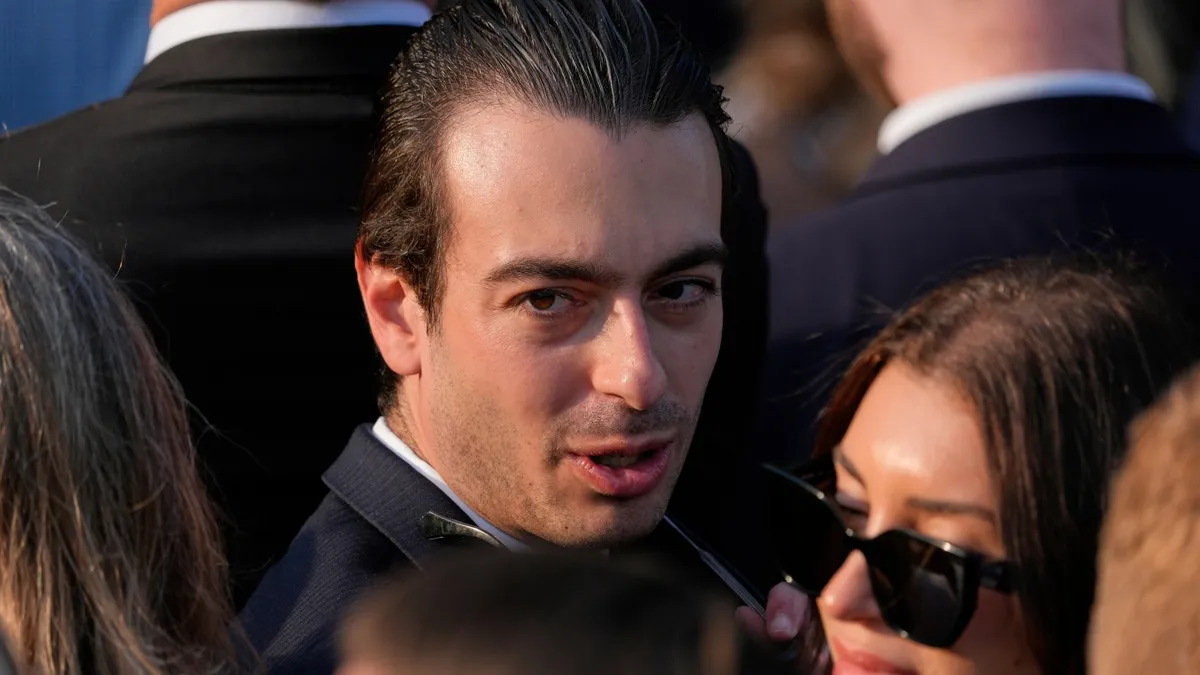
In a significant turn of events, Paul Ingrassia, President Donald Trump's nominee to lead the Office of Special Counsel, has officially withdrawn his nomination. This decision came on Tuesday evening, following the public release of his offensive text messages that sparked outrage among Republican senators, leading to a revolt against his confirmation.
Ingrassia was slated to have his confirmation hearing for the crucial role in the Office of Special Counsel this week. However, a report by Politico on Monday revealed a disturbing text exchange in which Ingrassia stated that the Martin Luther King Jr. holiday should be "tossed into the seventh circle of hell." Additionally, he described himself as having a "Nazi streak at times," which raised significant concerns among GOP senators.
Following the disclosure of these texts, several Republican senators, including some of Trump's staunchest allies, announced that they would not support Ingrassia's nomination. Wisconsin Senator Ron Johnson, who serves on the committee responsible for considering Ingrassia's nomination, expressed his disapproval, stating, "I'm a no. It never should have got this far."
Ingrassia himself acknowledged the opposition in an online message, stating, "I will be withdrawing myself from Thursday's HSGAC hearing to lead the Office of Special Counsel because unfortunately I do not have enough Republican votes at this time." He expressed gratitude for the support he received during the process, reiterating his commitment to serve President Trump and the administration's goal to "Make America Great Again."
The HSGAC (Senate Committee on Homeland Security & Governmental Affairs) was expected to take up Ingrassia's nomination, but the withdrawal came after Senate Majority Leader John Thune indicated that he hoped the White House would pull Ingrassia’s nomination. Ingrassia's withdrawal reflects a rare instance where Republican senators have publicly pushed back against a Trump nominee, highlighting the limits of their support in the face of significant controversies.
This incident is not an isolated case. There have been previous instances where Trump's nominees faced significant backlash. For example, Matt Gaetz withdrew from consideration for attorney general shortly after his nomination, and in May, Trump rescinded the nomination of Ed Martin Jr. as the top federal prosecutor due to bipartisan concerns regarding his qualifications. Most recently, the nomination of E.J. Antoni to lead the Bureau of Labor Statistics was also withdrawn.
Despite Ingrassia's withdrawal, not all lawmakers are satisfied. Senate Minority Leader Chuck Schumer, D-N.Y., has called for President Trump to dismiss Ingrassia from his current position as a White House liaison for the Department of Homeland Security, stating, "This isn't anywhere near enough." Schumer's comments underscore the ongoing scrutiny surrounding Ingrassia's past statements and the expectations for accountability among government officials.
The Office of Special Counsel plays a vital role in protecting government employees and whistleblowers from retaliation when reporting misconduct. It also enforces the Hatch Act, which restricts the political activities of government workers to maintain integrity and professionalism within federal agencies. The fallout from Ingrassia's nomination and withdrawal raises questions about the future leadership of this important office.
In the wake of these events, the White House issued a brief statement confirming Ingrassia's withdrawal, stating simply, "He is no longer the nominee." As the administration navigates these challenges, it remains to be seen who will be nominated next to lead the Office of Special Counsel and how it will impact the agency's mission moving forward.